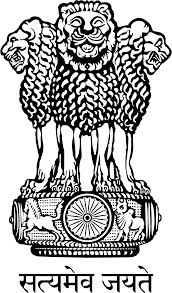About Us
Back. The National Center for Vector Borne Diseases Control (NCVBDC) administers an umbrella programme, namely, National Vector Borne Diseases Control Programme (NVBDCP) for prevention and control of vector borne diseases namely Malaria, Japanese Encephalitis, Dengue, Chikungunya, Kala-azar and Lymphatic Filariasis. Out of them three diseases namely, Malaria, Lymphatic Filariasis and Kala-azar are targeted for elimination. Malaria, Dengue and JE are outbreak prone and climate sensitive. The States/UTs are responsible for implementation of the programme, whereas NCVBDC provides technical and financial assistance to the States/UTs in the form of cash & commodity, under the overarching umbrella scheme of National Health Mission (NHM).
. Under the Union Ministry of Health and Family Welfare, Government of India, 17 Regional Offices for Health and Family Welfare (ROH & FW) are functioning. These offices are located at different state headquarters. The offices are manned by technical people to coordinate and monitor all national health and family welfare Programmes in the concerned states through close liaison and field visits. They are also capable for providing technical advice as well as assistance to the state. Under National Center for Vector Borne Diseases Control these offices are entrusted with the responsibility of conducting the entomological studies in collaboration with zonal entomological setup of the state, drug resistance studies, cross checking of blood slides for quality control, capacity building of the states, etc.
. Health being a state matter, the responsibility of implementation of Programme strategies and monitoring in accordance to Programme guidelines lies with them and the development of infrastructure has to be done by the state. Every state has state vector borne diseases control component under the Directorate of Health Services with stipulated technical components. There is a system of coordination between the state and centre for effective implementation and monitoring of Programme.
. At the district level, District Malaria Offices have been established under District Chief Medical and Health Offices by the states. This Unit is the key unit for planning and monitoring of Programme under a technical officer. At present 565 District Malaria Units are functioning.
. The Primary Health Centres are the basic units at the rural area for delivery of primary health care in an integrated manner. There are 22,975 Primary Health Centres functioning in the country. Further, at the peripheral level, there are 1,37,271 Sub-centres (ref. Bulletin on Rural Health Statistics in India -June 2000 -MOH&FW, GOI) which are the village level health institutions for delivery of primary health care. For referral services, there are 2935 Community Health Centres functioning in the country as the first reformal contact in rural areas.
. Passive surveillance for malaria is carried out by Primary Health Centres (PHCs), Malaria Clinics, Community Health Centres (CHC) and other secondary and tertiary level Health institutions to which patients visit for treatment. At present there are 22,975 PHCs, 2,935 CHCs (Ref.2) and 13,758 Malaria Clinics (Ref 1).Active surveillance is carried out by Health workers through fortnightly unit. However due to strength of health workers makes the active survillance is not carried out as per norms of Govt.
. In an effort to strengthen research on malaria and to meet the threat posed by resurgence of malaria, the Indian Council of Medical Research (ICMR) established Malaria Research Centre (MRC) in 1977. This institute works exclusively on malaria. MRC's mandate is to provide technical support to the National Programme in the control of malaria. The Centre focuses its research activities on vector biology and control; genetics, cellular and molecular biology; parasitology; biochemistry; pharmacology and epidemiology. Malaria Research Centre has 12 field stations in different parts of the country. MRC through its field stations evaluates new insecticides & diagnostic kits, conducts drug trials and monitors resistance to insecticides in vectors and to drugs in parasites. In addition to Malaria Research Centre there are four other Institutes of ICMR, Vector Control Research Centre, Pondicherry; Regional Medical Research Centre in Jabalpur, Madya Pradesh; Dibrugarh, (Assam) and Bhubaneswar, Orissa; and Desert Medical Research Centre, Jodhpur, Rajasthan which carry out research on various aspects of malaria in addition to their other activities. They have substantial number of technical manpower. It has now been envisaged to better utilize these teams for monitoring/supervision of implementation of National Vector Borne Disease Control Programme in colaboration with States/UTs apart from carrying out operational research. fever treatment depot and drug distribution centre have been established in each village to facility easy accessibility to treatment for reported malaria cases. These are FTDs and DDCs established in the country..


























